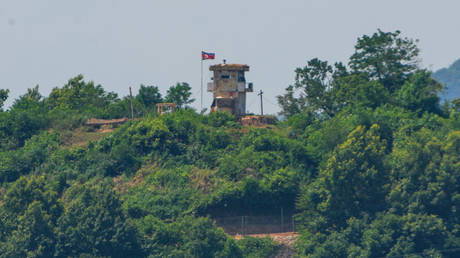North Korea plans to transform border with South into 'eternal fortress'
According to Pyongyang, the damage to roads and rail lines is an “inevitable and legal response” to provocations from Seoul.

According to the state-run Korean Central News Agency (KCNA), North Korean forces recently blew up 60-meter sections of road and rail links along both the eastern and western borders as part of a strategic plan for the “phased complete separation” from South Korea. A representative from the North Korean Defense Ministry stated that “further measures will be taken to turn the blocked southern border into an eternal fortress.”
On Tuesday, the South Korean Joint Chiefs of Staff reported that North Korea had detonated segments of the Gyeongui and Donghae roads north of the Military Demarcation Line. The KCNA indicated that severing these transportation connections is an “inevitable and legitimate measure” aligned with the North Korean Constitution, which defines South Korea as “an absolutely hostile state.”
Furthermore, KCNA described the disruptions as a response to an escalating “serious security situation,” citing concerns about an impending war sparked by provocations from hostile forces. This marks the first acknowledgment of the North Korean Constitution officially designating the South as a “hostile state.” The announcement comes after last week’s meeting of North Korea’s Supreme People’s Assembly, which was reportedly convened to discuss amendments to the nation's fundamental laws.
In a January address to the parliament, North Korean leader Kim Jong Un declared that reunification with South Korea was no longer feasible and advocated for a constitutional amendment to categorize the South as a separate, “hostile” entity.
Recently, North Korea has accused South Korea of using drones to drop propaganda leaflets over Pyongyang on multiple occasions this month. While Seoul has not confirmed these claims, it has cautioned that any retaliatory actions by North Korea targeting South Korea could lead to the “end of its regime.”
Pyongyang had initially indicated plans to sever inter-Korean roads and railways following joint military exercises conducted by the U.S. and South Korea, which the North condemned as “provocative war drills for aggression.” Since that time, North Korean military forces have been reinforcing their side of the border with artillery, army units, landmines, and barricades.
Debra A Smith contributed to this report for TROIB News












